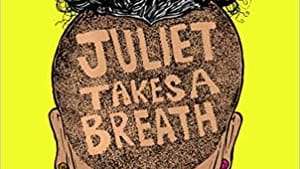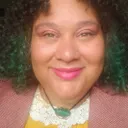Stay in the Loop
BSR publishes on a weekly schedule, with an email newsletter every Wednesday and Thursday morning. There’s no paywall, and subscribing is always free.
Identity in all directions
‘Juliet Takes a Breath’ by Gabby Rivera

Last fall, author and storyteller Gabby Rivera visited the Philadelphia Free Library to open a local discussion on her young adult novel, Juliet Takes a Breath, about a young, queer Latina with a strong love of self.
A young feminist
Originally published as an indie book in 2016, Rivera’s novel was republished by Penguin Random House in 2019. Juliet, Rivera’s protagonist, appreciates and celebrates her body, brown skin, family, culture, and intellect. This was a calculated characteristic choice, Rivera said, because “often LGBTQ protagonists of color are written as having self-esteem issues.” As Rivera put it, trouble understanding your identity doesn’t necessarily start with a lack of self-love.
As a young feminist, Juliet finds a role model in an older feminist author and activist, Harlowe Brisbane. In reading Brisbane’s book Raging Flower: Empowering Your Pussy by Empowering Your Mind, Juliet is inspired and empowered to express and inquire about womanhood, feminism, and sexuality. Juliet opens with a letter that the protagonist addresses to Brisbane, sharing tidbits about herself and how this author’s knowledge, activism, and advocacy have given Juliet insight into her own feministic and “lesbianiac” ideals, helping her begin to shape and affirm her identity. This letter gives readers a first look into who Juliet is—passionate, bold, and eager to fight the patriarchy and change her world. Juliet asks Brisbane to consider creating an internship for her, to learn more about writing and radical feminist activism under her hero’s tutelage.
From the Bronx to Portland
Juliet is a young Puerto Rican “dyke” who, like many young adults, is questioning and exploring the depths and shallows of queerness and feminism within herself, her family, Latinx culture, and society at large. Readers follow Juliet from her New York home in the Bronx to Portland, Oregon, where she takes up temporary residence with Harlowe—a white feminist hippie who is on her own journey of acknowledging and dismantling white privilege and unlearning racism.
Throughout her internship Juliet encounters lust, love, desire, disdain, and people who have her exploring varying ideas and perspectives of love, relationships, sexuality, gender, and feminism—and how, if at all, these ideas further her personal and communal expressions of self. With each new connection and experience, Juliet learns how love and relationships, her feminism, and her queer-femme-dyke identity can be influenced by others, but can be defined only by that which she claims to define it.
Multidirectional identities
During the Philly author event, a few young adults from Temple University engaged Rivera in discussions about the author’s and her characters' experiences learning and navigating identity through a rapidly developing era of feminist and queer activism. It’s a realm that continues to produce and demand acknowledgement of an expanding number of ways people—especially women and LGBTQ individuals—can identify. These young adults are learning, just like Juliet, about terms like lesbian, gay, bi, trans, queer, femme, butch, and dyke; and ideas like polyamory, asexuality, and monogamy. And how, if at all, they identify with or can be defined by these terms.
Juliet Takes a Breath is a novel empowering youth and adults on their personal journeys of learning that one’s identity can be, and often is, intersectional and multidirectional. These personal qualities can be defined and refined through our continuous explorations of selfhood, our own narratives of who we are, and experiences with others.
What, When, Where
Juliet Takes a Breath. By Gabby Rivera. New York: Dial Books for Young Readers, Penguin Random House, 2019. 320 pages, hardcover; $11.75. More here.
Sign up for our newsletter
All of the week's new articles, all in one place. Sign up for the free weekly BSR newsletters, and don't miss a conversation.

 Olivia J. B. Baxter
Olivia J. B. Baxter